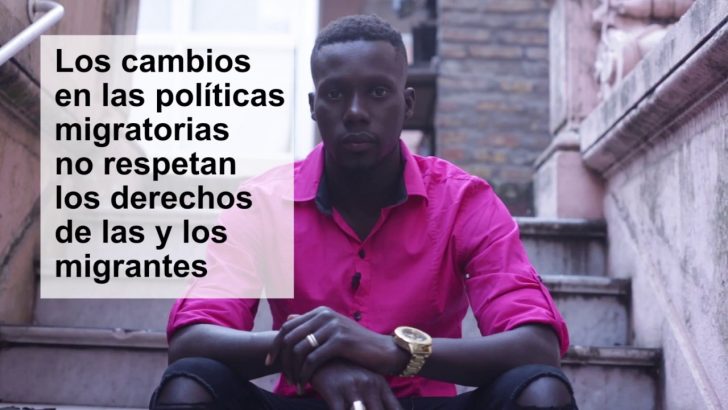One year ago, the executive branch modified Migration Law 25.871 through a Decree of Necessity and Urgency (DNU), creating a selective and discriminatory migration policy that classifies migrants in two groups: the “good ones,” who can regularize their status, and the “bad ones,” who should be expelled. This approach places all people who come from other countries under permanent suspicion and has consequences for migratory regularization processes, in particular for those people who have fewer resources, because of the wide range of conflicts that can result in deportation in the new regulatory context.
The DNU enabled a fast-track detention and deportation procedure for foreigners facing any type of criminal prosecution and also for those who have committed administrative infractions in migratory processes, such as, for example, failing to accredit their entry into the country at an authorized crossing or entry point. Now a migrant who subsists as a street vendor can be criminally charged for his or her economic activity, or for resisting eviction from a public space – and this will classify him or her as “expellable.” Judges and prosecutors have the obligation to notify the National Migration Office of the existence of judicial cases involving migrants. This notice immediately prompts the start of the expulsion process, regardless of whether the migrant in question has family, social ties, roots in the community or a life plan in Argentina.
Without dialogue, necessity or urgency
A week before the DNU was published in the government’s Official Bulletin, more than 150 social organizations asked the cabinet chief to create a space for dialogue on the previously announced reform, since the measure could have a negative impact on the lives of nearly 2 million people. Without debate and without going through Congress, the national government published DNU 70/2017 in the Official Bulletin. The letter was answered a week later, with the reform already signed, inviting our organizations to a meeting after the fact. For a full year, we have been waiting for an honest, open and participatory space to discuss a migration policy that would reaffirm the rights of migrants.
The government used two arguments that established a causal relationship between migration and criminality to justify the supposed necessity and urgency of its action, and to use the prohibited tool of legislating by decree. First, it presented statistical data in a misleading way: it said that the “population of people of foreign nationality in the custody of the federal penitentiary service” was 21.35%, when foreigners detained in federal and provincial prisons represent 6% of the total. Furthermore, it asserted that prolonged administrative and judicial processes make it difficult for migration authorities to fulfill their duty to “ensure the legal migratory order, which ultimately affects public safety.” Instead of seeking effective tools to identify the procedural delays and the causes behind them, the government decided that selected migrants would no longer have the right to access justice and to a necessary legal defense in the migration process.
At no point did the government provide a substantive explanation as to why it could not wait until the legislative session had started to present a bill to reform the law, or introduce the item during a special session. Since February 2017, the decree has been studied by the Permanent Bicameral Committee for the Oversight of DNUs, with no date set for its debate in Congress. In this context, all administrative decisions made since the signing of the decree are valid.
Model law and the Global Compact
Argentina’s Migration Law, approved in 2004 after years of collective struggle for Argentina to have a democratic immigration policy, recognizes migration as a human right and migratory regularization as an obligation of the state. It influenced legislative reforms in Uruguay, Bolivia, Peru, Ecuador and Brazil. The migration policy developed since then has been praised by numerous human rights bodies and social activists around the world as a model that contrasts with the restrictive policies implemented in other countries, in particular in Europe and the United States.
Currently, debates are taking place within the United Nations over the Global Compact on migration, which will be adopted this year and subscribed to by member states. This Compact could be an unprecedented intergovernmental tool for the development of public policies that improve the situation of migrants, through a broad discussion of migratory regularization as a vehicle to ensure rights, access to justice – especially in expulsion proceedings – and the non-criminalization of migration.
In this context, the region’s migratory policy models can contribute their noteworthy experiences to the drafting of the Global Compact, both in terms of regulations and their practical application. But for this to occur, Argentina must retrace its steps and repeal DNU 70/2017.
DNU 70/2017 was criticized by:
United Nations Committee Against Torture
United Nations Working Group on Arbitrary Detention

